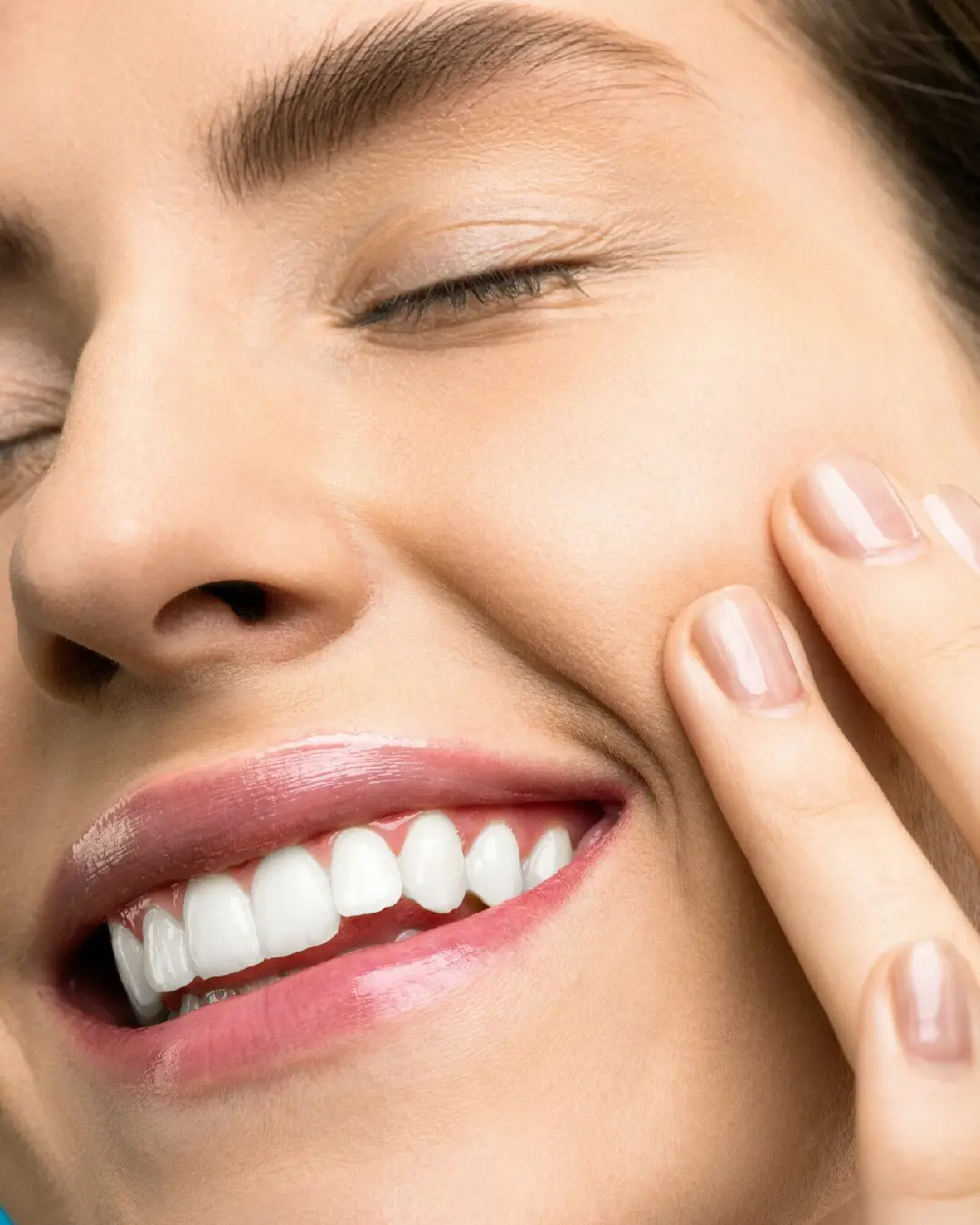Transform your smile with professional teeth whitening, ensuring brighter teeth and enhanced confidence through safe and effective dental care.

Teeth whitening is an application that makes teeth brighter and lightens their existing color by several shades. It is a form of dentistry and should only be carried out by a dentist.
Procedure: Teeth whitening involves the use of bleaching agents or other materials to remove stains and discoloration from the enamel (outer layer) of teeth.
Purpose: The primary goal of teeth whitening is to enhance the appearance of teeth by making them appear brighter and whiter.
Professional Supervision: While there are over-the-counter whitening products available, teeth whitening is most effective and safest when performed under the supervision of a dentist.
Candidates: Teeth whitening is generally suitable for individuals with healthy teeth and gums. It may not be recommended for those with dental restorations (such as crowns or fillings) on visible teeth, as these materials do not whiten like natural tooth enamel.
Duration and Results: The duration of treatment and results vary depending on the method used and the extent of staining. In-office treatments typically yield faster results compared to at-home methods.
Safety Considerations: Professional supervision helps ensure that teeth whitening is performed safely, minimizing potential side effects such as tooth sensitivity or gum irritation.
Teeth whitening is a dental procedure aimed at brightening and lightening the color of teeth by several shades. It involves the use of bleaching agents or other materials to remove stains and discoloration from the outer layer (enamel) of the teeth.
Teeth whitening is generally suitable for individuals with healthy teeth and gums who wish to enhance the appearance of their smile. It may not be recommended for those with dental restorations on visible teeth, such as crowns or fillings, as these materials do not respond to whitening treatments like natural tooth enamel.
There are two main types of teeth whitening:
In-Office Whitening: This involves a higher concentration of whitening agents applied by a dentist, often with the use of a light or laser to accelerate the bleaching process.
At-Home Whitening: Dentists provide custom-made trays and lower-concentration whitening gels for patients to use at home over a prescribed period.
Teeth whitening is safest and most effective when performed under the supervision of a dentist. Professional oversight helps minimize potential side effects such as tooth sensitivity or gum irritation that may occur with over-the-counter products.
The duration of treatment and results vary depending on the method used and the extent of staining. In-office treatments typically yield faster results, while at-home methods require longer application times. Results can last for months to years with proper oral care and maintenance.
To schedule a consultation, please visit Book an Appointment page to book an appointment online.